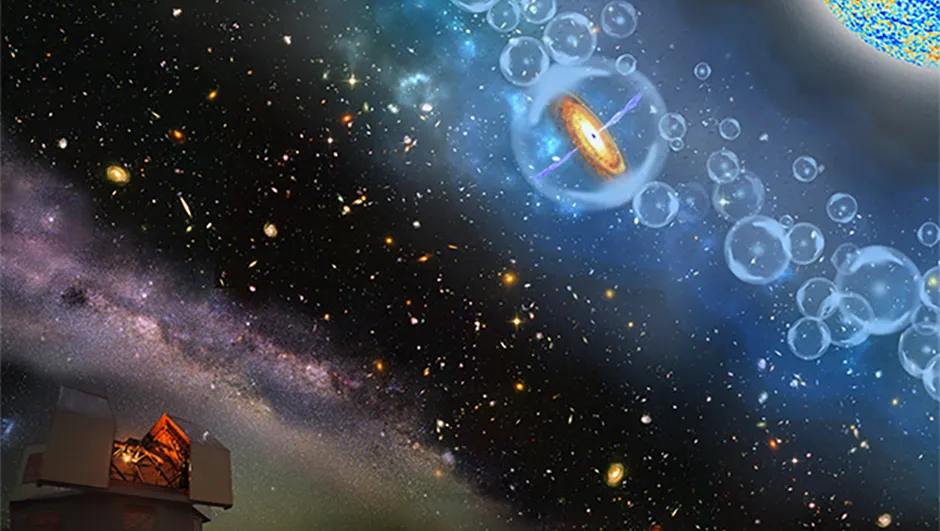Astronomers have discovered the most distant supermassive black hole ever observed.
The black hole is so far away, its light has reached us from a time when the Universe was only five per cent of its current age, just 690 million years after the Big Bang.
The discovery could help shed new light on what conditions were like shortly after the Big Bang; in particular, what sort of objects existed in the early Universe.
The black hole was observed by a team at theCarnegie Institution for Science, led by Eduardo Bañados and using Carnegie’s Magellan telescope.
The black hole has a mass 800 million times that of our Sun, but such a large object may not have been a rarity during the early stages of the Universe.
For a black hole to grow this big so soon after the Big Bang, astronomers suggest that the early Universe might have had conditions that would allow the formation of very large black holes with masses reaching 100,000 times the mass of the Sun.
In the present day Universe, black holes rarely grow beyond a few dozen solar masses.

The newly-discovered black hole is located in a luminous quasar.
These are bright objects that contain black holes accreting matter at the centres of massive galaxies.
This quasar, the Bañados quasar, existed during a time known as the epoch of reionisation, when the material in the Universe began to condense and the first stars were born.
Between 20 and 100 quasars as bright and as distant as the one discovered are currently thought to exist over the whole sky, so locating and studying them could provide scientists with more information to unlock the secrets of the early Universe.
